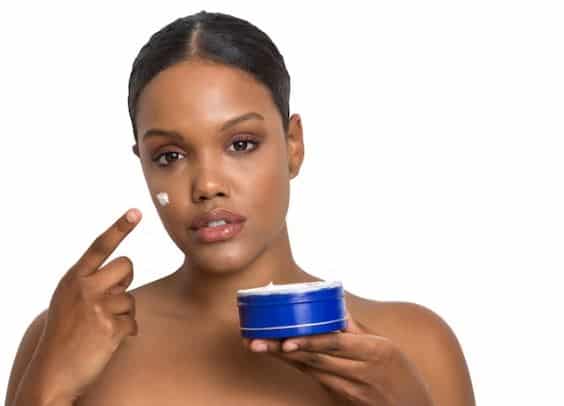Skin lightening products, including bleaching creams, have become increasingly popular in recent years. Many people turn to these products to achieve a lighter skin tone or to address issues such as dark spots and uneven pigmentation. However, the question remains: are bleaching creams safe? In this article, we will delve into the potential risks and side effects associated with the use of skin-lightening creams and explore alternative methods for achieving desired results.
A Background on Skin Bleaching and Skin Lightening Creams
Skin bleaching is a process that involves the use of skin lightening products to lighten the skin’s color. These products work by reducing the amount of melanin, which is responsible for the color of our skin, in the targeted areas. There are various types of skin lightening products available, ranging from over-the-counter creams to professional treatments.
Bleaching creams are some of the most popular skin lightening products on the market. They often contain ingredients such as hydroquinone, mercury, kojic acid, and steroids, which can effectively lighten the skin. However, these ingredients can also pose significant risks to the user’s health.
The Potential Dangers of Skin Lightening Creams
While some skin lightening creams may be effective in achieving a lighter skin tone, they can also cause a range of side effects and long-term damage to the skin. For example:
-
Skin irritation
Some people may experience redness, itching, and burning sensations as a result of using skin bleaching products. This can be particularly problematic for those with sensitive skin or pre-existing skin conditions.
-
Skin thinning
Long-term use of skin lightening creams can result in the thinning of the skin, making it more susceptible to injury and infection.
-
Hyperpigmentation
Ironically, the use of skin lightening products can sometimes lead to an overproduction of melanin, resulting in dark spots and uneven pigmentation.
-
Increased risk of skin cancer
Some ingredients found in skin bleaching creams can cause photo-sensitivity, which increases the risk of skin cancer when exposed to the sun.
One of the most concerning issues related to skin lightening creams is the presence of mercury. Products that contain mercury can be extremely harmful, as exposure to mercury can result in damage to the nervous system, kidneys, and other organs.
Mercury can also be absorbed through the skin, making it particularly dangerous in skin lightening products. In the United States, the FDA has banned the use of mercury in cosmetics, but some products from other countries may still contain this harmful ingredient.
ALSO READ: We Recommend The Best Glowing Skin In Nigeria
How To Use Skin Bleaching Products
Using skin bleaching products should be done with caution, as they can have potential side effects. However, if you still decide to use them, it’s important to follow the correct steps and precautions to minimize any risks. Here’s a guide on how to use skin bleaching products safely and effectively:
- Consult a dermatologist: Before using any skin bleaching product, consult a dermatologist to determine if it’s suitable for your skin type and condition. They can also recommend the most appropriate product based on your needs and skin concerns.
- Choose a reputable product: Select a skin bleaching product from a reputable brand and ensure it meets the regulations set by your country’s health authorities. Avoid purchasing products from unknown sources or those that contain banned ingredients like mercury.
- Perform a patch test: Before applying the product to a large area, conduct a patch test to check for any allergic reactions or sensitivity. Apply a small amount of the product to a discrete area of your skin, such as behind your ear or the inside of your elbow. Wait for 24 hours to see if any redness, irritation, or itching occurs. If you experience any adverse reactions, discontinue use and consult your dermatologist.
- Read the instructions: Carefully read and follow the instructions provided by the manufacturer. This may include information on how much product to use, how often to apply it, and any specific precautions to take.
- Cleanse and prepare your skin: Before applying the skin bleaching product, cleanse your skin thoroughly and gently pat it dry. This will help the product penetrate your skin more effectively.
- Apply the product: Use a clean applicator or your fingertips to apply the product evenly to the desired areas, avoiding contact with your eyes, mouth, and any open wounds or irritated skin. Be sure not to apply the product on healthy skin, as it may cause uneven lightening.
- Wash your hands: After applying the product, wash your hands thoroughly to avoid accidentally transferring it to other areas of your body or to other people.
- Follow the recommended duration: Adhere to the manufacturer’s guidelines regarding how long to leave the product on your skin and how often to use it. Overusing the product can lead to side effects and skin damage.
- Monitor your skin: Keep a close eye on your skin during the treatment process. If you notice any signs of irritation, redness, or other adverse reactions, discontinue use immediately and consult your dermatologist.
- Protect your skin: While using skin bleaching products, your skin may become more sensitive to sunlight. Wear sunscreen with an SPF of at least 30 and protective clothing to minimize sun exposure.
Remember, the safety and efficacy of skin bleaching products can vary greatly depending on their ingredients and formulation. It’s crucial to consult a dermatologist before using any such products and follow their guidance throughout the process.
Regulations and Guidelines for Skin Lightening Products in Nigeria
In Nigeria, the regulation of bleaching creams and other cosmetics falls under the jurisdiction of the National Agency for Food and Drug Administration and Control (NAFDAC). NAFDAC is responsible for ensuring the safety, quality, and effectiveness of various consumer products, including cosmetics.
NAFDAC has taken several steps to regulate the sale and use of skin bleaching creams in Nigeria. In recent years, the agency has intensified its efforts to clamp down on the importation, distribution, and sale of potentially harmful skin lightening products containing dangerous substances like mercury, hydroquinone, and steroids.
In 2019, NAFDAC announced a ban on the importation and production of high-concentration hydroquinone and mercury-containing creams in Nigeria. The agency also conducts regular inspections and raids on markets and retail outlets to identify and confiscate illegal products.
Despite these efforts, there are still challenges in effectively regulating the skin bleaching cream market in Nigeria. The prevalence of counterfeit products, inadequate consumer awareness, and weak enforcement of existing regulations remain significant obstacles. As a result, potentially harmful skin bleaching products continue to be available in the Nigerian market.
It’s essential for consumers to be cautious when purchasing skin lightening products in Nigeria or any other country. Always look for reputable brands and check for NAFDAC registration numbers on the packaging. If you have concerns about the safety of a particular product, consult with a dermatologist or healthcare professional before using it.
Alternatives to Bleaching Creams
For those seeking lighter skin or looking to address issues such as dark spots, there are alternative methods that may be safer than using bleaching creams:
-
Natural remedies
Ingredients such as lemon juice, turmeric, and aloe vera have been used for centuries as natural skin lighteners. While they may not offer the same dramatic results as bleaching creams, they are less likely to cause harmful side effects.
-
Professional treatments
Chemical peels, laser therapy, and microdermabrasion are all treatments that can be performed by a licensed professional to help lighten the skin and address pigmentation issues. These treatments should be discussed with a dermatologist to ensure they are appropriate for your specific needs.
Conclusion
While some skin lightening creams may offer desired results, it is crucial to weigh the potential risks and side effects associated with their use. Strict regulations and consumer education are necessary to ensure the safety of these products. It is essential to consider alternative methods for achieving lighter skin or addressing pigmentation issues and, ultimately, to embrace and celebrate the beauty of our natural skin color.



